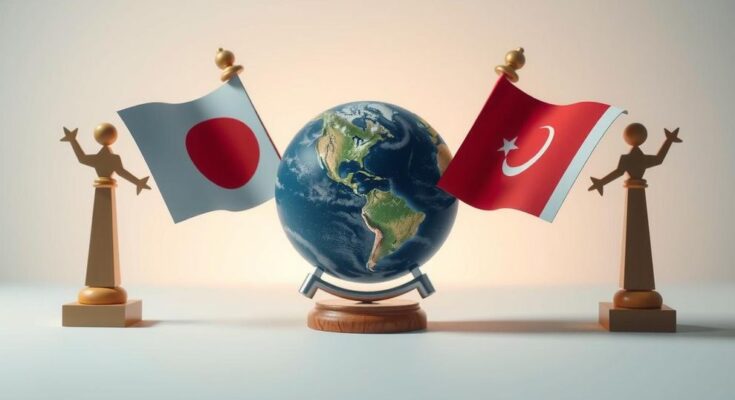The Rwandan Embassy in Stockholm addressed a recent summons by the Swedish Ministry for Foreign Affairs regarding accusations of Rwanda’s involvement in the DRC crisis, dismissing them as unfounded. The embassy highlighted Sweden’s neglect of Congolese Tutsi persecution and criticized its alignment with Belgium. Rwanda reiterated its commitment to national security and humanitarian responsibilities in light of ongoing conflicts.
The Rwandan Embassy in Stockholm has reacted to a summons by the Swedish Ministry for Foreign Affairs regarding accusations of Rwanda’s alleged involvement in the ongoing crisis in the Democratic Republic of the Congo (DRC). The embassy highlighted Sweden’s lack of attention to the persecution faced by Congolese Tutsi communities and its alignment with Belgium. Rwanda dismisses claims of supporting the M23 rebels, attributing its actions to security concerns over the FDLR, a terrorist group linked to the 1994 Rwandan genocide.
In its statement, the embassy emphasized that Rwanda has been subject to security threats from the FDLR, which has conducted numerous cross-border attacks. The Rwandan Defense Forces (RDF) are tasked with ensuring national security amid these threats, particularly given that the FDLR operates alongside the Congolese army. “Only the RDF and the Commander-in-Chief can determine the necessary defensive measures to protect the lives of Rwandans,” the statement insisted, underscoring Rwanda’s resolve in national defense.
The embassy criticized Sweden’s diplomatic stance, labeling it as a double standard regarding the crisis. It expressed dismay at Sweden’s indifference towards the plight of Congolese Tutsis who experience ethnic persecution allegedly supported by the Congolese government. Furthermore, the embassy noted Sweden’s alignment with Belgium, which has historically influenced Rwanda’s colonial legacy.
Rwanda’s diplomatic message asserts that the overly simplified narrative of Rwanda backing the M23 rebels fails to acknowledge legitimate grievances within Congo. The embassy calls for acknowledgment of the DRC government’s failures, which have exacerbated ethnic tensions and violence against Kinyarwanda-speaking communities. These issues include systematic persecution and displacement of Tutsi individuals, the embassy warned.
The embassy contended that international responses to the conflict have been inadequate. Specific reference was made to the United Nations Security Council, which facilitates support for the DRC’s armed forces without addressing their collaboration with the FDLR. Rwanda criticized the lack of punitive action against the Congolese government, despite evidence of its cooperation with the FDLR. Additionally, Rwanda condemned Sweden’s silence regarding attacks against its territory by FDLR forces.
Despite these challenges, Rwanda remains committed to humanitarian obligations, providing refuge to individuals fleeing conflict, including military personnel from the DRC. The embassy emphasized the importance of recognizing the illegal recruitment of European mercenaries by the DRC government, which has gone unnoticed. Rwanda called on Sweden to support an African-led mediation initiative aimed at fostering security and resolving ethnic extremism in the region.
Ultimately, Rwanda’s position is clear: the crises fueled by the DRC government’s mismanagement and the inaction of the international community must end, as stated in the embassy’s communication. A secure border and stability in the region serve as Rwanda’s primary objectives moving forward.
The Rwandan Embassy in Stockholm has expressed strong concerns over allegations regarding Rwanda’s role in the DRC crisis, urging for a balanced international response that considers the persecution faced by Tutsi communities. The embassy’s statement underscores Rwanda’s commitment to national security and humanitarian efforts, advocating for an African-led resolution to the conflict. In light of Sweden’s diplomatic approach, the embassy emphasized the need to acknowledge the complexities surrounding the situation, urging for a principled stance against ethnic violence and instability in the region.
Original Source: www.newtimes.co.rw




